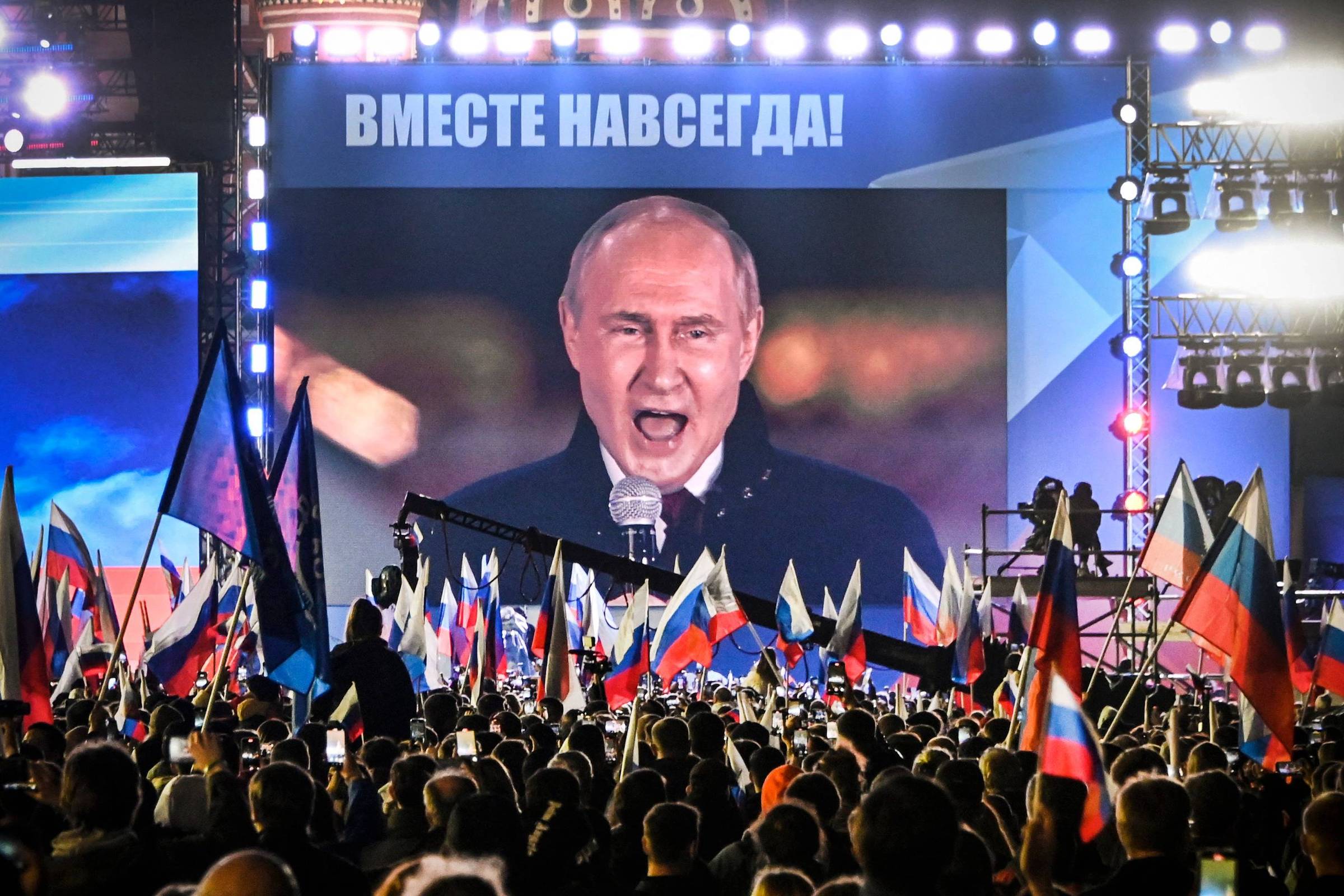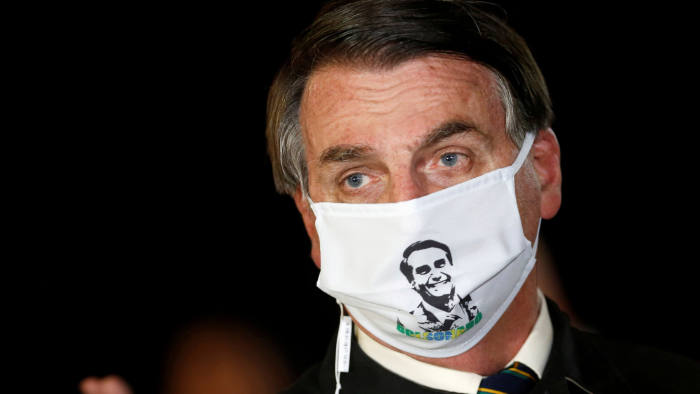Grato a Marcelo Halberg pela transcrição:
TRUMP QUER UM MUNDO SEGURO PARA OS AUTOCRATAS - GIDEON RACHMAN
Financial Times / Valor Econômico, 1/03/2025
A dura verdade é que Vladimir Putin e Donald Trump estão unidos em seu desprezo pelas democracias europeias
"O mundo deve se tornar seguro para a democracia. Sua paz deve ser estabelecida sobre os comprovados fundamentos da liberdade política." Essas foram as palavras do presidente Woodrow Wilson em abril de 1917, às vésperas da entrada dos Estados Unidos na Primeira Guerra Mundial.
Mais de um século depois, Donald Trump embarcou em uma missão global muito diferente. O presidente dos EUA está tornando o mundo seguro para a autocracia.
A afirmação de Trump de que a Ucrânia foi responsável por sua própria invasão e que Volodymyr Zelensky é um ditador trouxe clareza.
Ao se alinhar tão perfeitamente com a propaganda do Kremlin, o presidente americano demonstrou que os Estados Unidos de Trump estão perfeitamente satisfeitos em ver a Rússia vencer esta guerra e esmagar a Ucrânia.
Diplomatas europeus e ucranianos — excluídos das negociações entre EUA e Rússia — seguem verificando se é possível obter dos Estados Unidos apoio a garantias de segurança confiáveis para a Ucrânia. Mas o único interesse restante de Trump na Ucrânia parece ser predatório — basta observar sua exigência de que o país entregue grande parte de sua riqueza mineral aos EUA.
Reconhecendo que dinheiro é uma das poucas coisas que realmente motivam Trump, os russos chegaram às negociações na Arábia Saudita com uma longa lista de negócios tentadores. Espera-se que as sanções dos EUA contra a Rússia sejam suspensas em breve.
Ainda há quem, na Europa, tente racionalizar tudo isso. Argumentam, com base em muito poucas evidências, que Trump não deseja que a Rússia vença a guerra. Outros alegam que tudo isso faz parte de uma manobra inteligente dos EUA para isolar a China.
Mas a dura verdade é que Vladimir Putin e Trump estão unidos em seu desprezo pelas democracias europeias. No início de fevereiro, Putin disse que Trump "vai restaurar a ordem" na Europa e que os países europeus "se ajoelharão diante do mestre e abanarão o rabo docemente". Essas declarações foram republicadas por Trump nas redes sociais.
Admiração por Xi
Quanto à China, Trump expressou sua admiração por Xi Jinping quase tantas vezes quanto adulou Putin. Ele parece querer fechar um acordo com o ditador chinês. Portanto, parece altamente provável que Trump acabará traindo Taiwan do mesmo modo que traiu a Ucrânia.
O círculo de rumores em Washington já está fervilhando com conversas de que os EUA ameaçarão impor tarifas sobre Taiwan, a menos que este concorde em vender uma parte significativa da TSMC, a principal empresa de semicondutores do mundo, para um comprador americano. Se os EUA conseguirem reduzir sua dependência dos semicondutores taiwaneses, o caminho estará aberto para que abandone Taiwan.
Um mundo em que Rússia, China e Estados Unidos sejam hostis à democracia liberal (democracia constitucional) é inegavelmente intimidador para os europeus. Mas, embora haja motivos para alarme, não há necessidade de desespero. Os países europeus ainda têm recursos formidáveis para se proteger — e estão começando a perceber a realidade e a reagir a ela.
As fraquezas e os pontos fortes da Europa
Friedrich Merz, que está prestes a se tornar o novo primeiro-ministro após as eleições de domingo (23) para o Parlamento alemão, disse recentemente: "Devemos nos preparar para a possibilidade de que Donald Trump não mantenha mais incondicionalmente o compromisso de defesa mútua da Otan". Merz quebrou outro tabu ao sugerir que a Alemanha deveria conversar com a França e o Reino Unido sobre "compartilhamento nuclear" — para que os alemães não fiquem mais à mercê da proteção nuclear americana.
As fraquezas da Europa são bem conhecidas: crescimento lento, altas dívidas, exércitos pequenos, uma UE de movimento lento — e a ascensão de partidos extremistas inclinados para Putin e Trump.
Mas uma Europa unida também tem forças tremendas das quais precisa se lembrar e às quais deve recorrer. A UE e o Reino Unido, juntos, possuem uma economia cerca de 12 vezes maior que a da Rússia. A UE é a maior exportadora mundial de bens manufaturados e serviços e tem um poder comercial consideravelmente maior do que os EUA.
A Europa produz ciência de ponta. Tem uma base industrial sólida. Que os países europeus sigam o Estado de direito é crucial para os negócios e atrairá investimentos, na medida em que o desprezo da administração Trump pela lei se torna cada vez mais evidente.
O aumento acelerado dos gastos com defesa em uma base pan-europeia é totalmente viável. A cooperação entre Reino Unido, França e Alemanha está se intensificando e pode complementar a UE, que se move mais lentamente.
A Europa se sente perigosamente isolada no momento. Mas há uma rede de democracias liberais avançadas ao redor do mundo que desejará trabalhar com a Europa e o Reino Unido — incluindo Japão, Coreia do Sul, Austrália e Canadá.
Os europeus também devem considerar a ideia de que este período sombrio nos EUA não durará para sempre. As forças de esquerda nos EUA estão em retração, mas não desapareceram. A imprudência e a arrogância da administração Trump tornam perfeitamente possível que o movimento Maga imploda rapidamente.
Eles e seus aliados democráticos ao redor do mundo precisam resistir, confiantes de que, no final, seus valores prevalecerão, como aconteceu no passado.
Como Wilson disse em 1917: "Lutaremos pelas coisas que sempre trouxemos mais próximas aos nossos corações — pela democracia, pelo direito daqueles que se submetem à autoridade de ter voz em seus próprios governos, pelos direitos e liberdades das pequenas nações".
Os Estados Unidos estão do lado errado dessa luta, por enquanto. A UE e o Reino Unido podem — e devem — continuar a luta.



